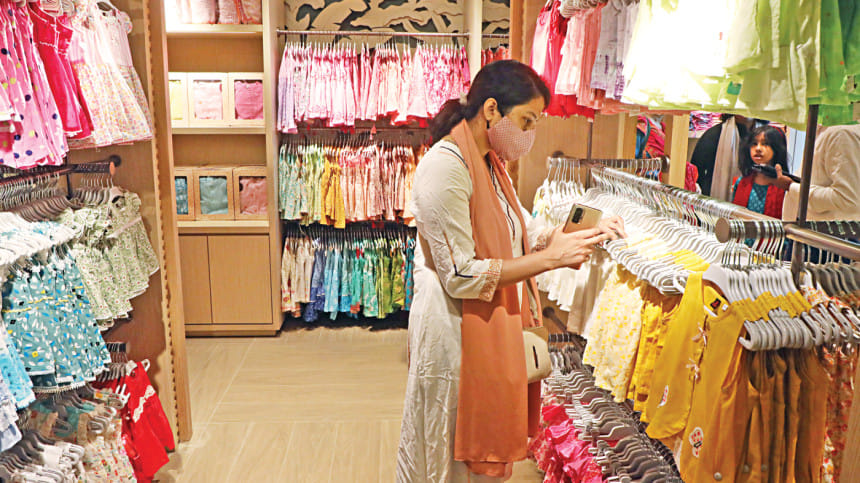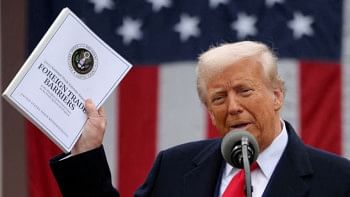Tariff commission flags textile smuggling ahead of Eid

With festivities in full swing ahead of Eid-ul-Fitr, the Bangladesh Trade and Tariff Commission has emphasised the importance of safeguarding the local textile industry against the growing influx of imported garments.
As demand for apparel spikes during the country's largest shopping festival, the commission proposed several critical steps yesterday to counter the rising trend of imports, smuggling, and duty evasion that is threatening locally produced textiles.
According to a survey by the Bangladesh Shop Owners Association (BSOA), business worth around Tk 170,000 crore is conducted ahead of Eid-ul-Fitr, with over Tk 37,000 crore spent on clothes.
However, smuggled garments often infiltrate shopping hubs, undercutting local producers, during this lucrative time.
In its recent report, the tariff commission focused on the need for urgent intervention to protect the domestic market for textiles, especially in the face of increasing competition from imports.
The Bangladesh Jamdani Manufacturers and Exporters Association (BJMEA) raised concerns about the rising availability of imported sarees, three-piece suits, "lehengas", and other garments, which could jeopardise the livelihoods of local weavers and manufacturers.
The commission's report revealed that a significant amount of apparel enters the market through both legal and illegal channels.
The analysis shows that saree imports from India alone reached 3,300 tonnes in fiscal year 2022-2023, valued at Tk 28.26 crore, before dropping to 2,526 tonnes in FY24, valued at Tk 25.89 crore.
Similarly, in FY24, imports of three-piece dresses and "lehengas" hit 37,676 tonnes, valued at Tk 1,531.56 crore. Until December 9 of this fiscal year, 16,506 tonnes, valued at Tk 658.43 crore, were brought in.
The commission further noted that the average net price per piece of imported garments appears lower than current market prices.
Some foreign sarees and "lehengas", which should be worth over Tk 1 lakh in the local market, are being sold well below those prices, suggesting oversupply and possible links to duty evasion or smuggling.
To ensure that the actual value of these imports is properly reflected, the commission has recommended that the National Board of Revenue issue special instructions to import clearance stations for garments, including two-piece outfits, three-piece dresses, "lehengas", and sarees.
The commission also called for all garment products to come under inspection during customs clearance.
These inspections should involve relevant customs officers and third-party agencies to prevent false declarations and guarantee compliance with regulations.
Furthermore, the commission urged the Ministry of Home Affairs, in collaboration with the Directorate of Customs Intelligence and Investigation, to take strict legal action against smuggling and duty evasion.
Special operations led by Border Guard Bangladesh, police and anti-smuggling district task forces are essential to protecting the domestic market from illegal foreign textiles.
Bangladesh imports apparel from countries like India, Pakistan, China, Myanmar, Hong Kong, Vietnam, Thailand, and Japan.

 For all latest news, follow The Daily Star's Google News channel.
For all latest news, follow The Daily Star's Google News channel. 



Comments